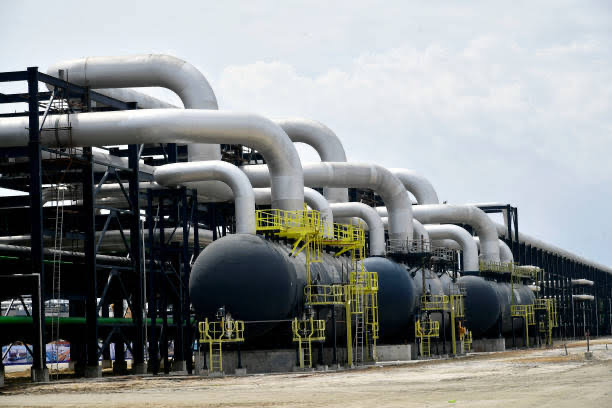The Franco-Nigerian Chamber of Commerce and Industry (FNCCI) said issues surrounding oil theft and other situations linked to oil production need to be addressed if Nigeria is to meet its energy needs at a sustainable cost.
The chamber also said achieving this would require the supply of local crude oil to Port Harcourt and Dangote refineries to eliminate the price effect of foreign exchange harmonization.
In a statement by the chamber on the latest Gross Domestic Product (GDP) report for the second quarter of 2024 by the Nigerian Bureau of Statistics (NBS), it said a country’s GDP reflects the size and performance of its economy. The figure allows policymakers to get a grip on the economy and take necessary measures.

The chamber said the contribution of the agriculture sector to the non-oil sector declined significantly compared to the previous year. The sector contributed 18.54% to Nigeria’s GDP, lower than 21.7% in the second quarter of 2023.
The chamber said it believes this may be related to insecurity in the northern part of the country and poorer benefits from climate change.
According to FNCCI, nominal manufacturing GDP growth in the second quarter of 2024 was 1.91% (year-on-year). This represents a decrease of 27.99 percentage points from the corresponding period in 2023 and a decrease of 6.30 percentage points from the previous quarter.
The chamber said the decline was due to rising energy costs, both from grid energy and alternative sources of power, and the appreciation of the exchange rate on imports of raw materials. We believe that manufacturing should be given more attention and support as it is crucial to economic development.
It was noted that Nigeria’s current oil production in the second quarter of 2024 declined quarter-on-quarter (from 1.57 million barrels per day to 1.41 million barrels per day). For the country to meet its energy needs at a sustainable cost, issues surrounding oil theft and other circumstances related to oil production need to be addressed. To achieve this, there is a need to locally supply crude oil to the Port Harcourt and Dangote refineries respectively, thereby eliminating the price effect of foreign exchange harmonization.

Meanwhile, according to the latest NBS GDP report, the Nigerian economy grew by 3.19% in the second quarter of 2024 (2Q2024). The growth rate in the fourth quarter of 2024 increased by 0.68 percentage points compared to the growth rate of 2.51% in the second quarter of 2023 and increased by 0.21 percentage points compared to the growth rate of 2.98% in the first quarter of 2024.
The nominal GDP was 60.93 billion naira, which is higher than the total GDP of 52,139,271,300,000,000 naira in the second quarter of 2023.
The Nigerian oil sector recorded an average crude oil production of 1.41 million barrels per day (mbpd) in the second quarter of 2024. This was 0.19 million mbpd higher than the average daily production of 1.22 million mbpd in the same quarter of 2023 and 0.16 million mbpd lower than the average daily production of 1.22 million mbpd in the same quarter of 2023. It will be 1.57 mbpd in the first quarter of 2024.
The oil sector contributed 5.70% to the total real GDP in the second quarter of 2024. This is higher than the 5.34% figure for the same period in 2023 but lower than its contribution of 6.38% in the previous quarter. The oil sector recorded a real growth rate of 10.15% (year-on-year) in the second quarter of 2024. This was an increase of 23.58 percentage points compared to the growth rate in the corresponding quarter of 2023 (-13.43%).
The non-oil sector grew by 2.80% in the second quarter of 2024. This rate was 0.78 percentage points lower than the rate of 3.58% in the same period of 2023 and relatively comparable to 2.80% in the first quarter of 2024. This sector was mainly finance and insurance (financial institutions); information and communications (telecommunications); agriculture (crop production); trade; and manufacturing (food, beverages, and tobacco) led the positive growth in GDP.
The non-oil sector contributed 94.30% to the country’s GDP in Q2 2024, lower than its share of 94.66% in Q2 2023 and higher than its share in Q1 2024, which recorded 93.62%.

































